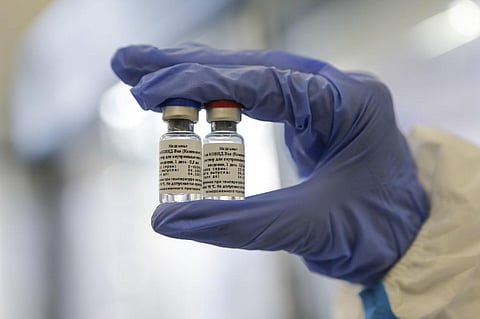

BENGALURU: The Russian Gam-COVID-Vac seems to have got global attention.
However, senior doctors and research experts here are raising concern over the announcement without details of Stage 3 clinical trials.
Experts claim that the problem is that Russia, in its eagerness to capture the world with a project dubbed Sputnik V, has bypassed key parts of the standard drug and vaccine-development protocol.
On Thursday, Biocon Chief Kiran Mazumdar-Shaw questioned Russian claims citing absence of data on clinical trials and “more advanced” programmes elsewhere.
She said the world has not seen any data on Phase 1 or 2 clinical trials conducted by Moscow-based Gamaleya Research Institute.
Dr Vishal Rao, head and neck oncologist and who has also been extensively researching on the vaccine front, expressed concern that the Russian Gam-COVID-Vac.
“It has only completed Phase 1/2 trials (76 patients) while a successful clinical trial should complete four phases and be tested in tens of thousands of patients,” he told TNIE.
He said the study population that is tested needed to be compared by a non-test arm to prove efficacy. The only way this happens is when patients are exposed to the virus.
A senior doctor said, “Vulnerable groups need to be specifically looked into – the elderly, co-morbid and healthcare workers. This is very important.”
The experts explained it is an adenoviral-based vaccine that displays the SARS-CoV 2 glycoprotein S molecule on its surface.
Upon vaccination, the individual will generate an immune response against the glycoprotein S molecule and thus will have endogenous antibodies that will protect the person from infection with SARS-CoV 2.
“The antibodies produced after the vaccine need to last for sometime at least -- preferably a year. Considering all this, we need to caution citizens that it is far too early to conclude on the efficacy of this vaccine. The efforts must be a product of science of pandemics and not politics of pandemics,” Dr Rao said.
Dr Jitendra Kumar, MD, Bangalore Bioinnovation Centre, said, “Considering such discoveries as a ray of hope, we could wait for valid data to be published.”